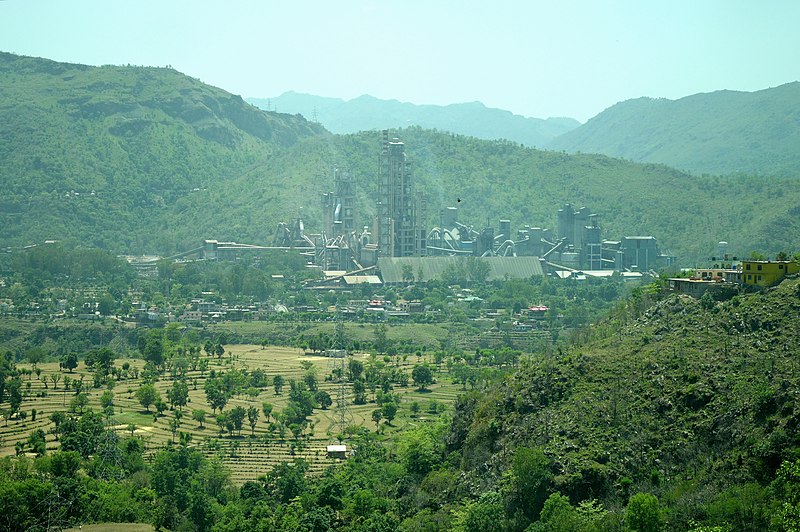
Himachal: Deadlock between Adani Cement and truckers continues over freight charges

Yet another round of talks between transporters and the Adani Group management to resolve the truckers’ freight rate issue remained inconclusive in Shimla on Thursday (January 12).
The meeting was convened under the chairmanship of the Managing Director of the state civil supplies corporation.
The Adani management had closed Ambuja Cements Limited (ACL) at Darlaghat and ACC plant in Barmana unilaterally on December 15 after the transporters didn’t accept lower freight rate of Rs 6 per tonne per km in the hills suggested by the group. Till then, the cost of transporting a quintal of cement was pegged at Rs 10.58 per km in the hills and Rs 5.38 in the plains.
After the announcement, the Himachal Pradesh government issued a show-cause notice to the Adani Group over not informing the government before closing down the plant. The truckers’ union and company representatives have held several rounds of discussions since, but to no avail.
Govt subcommittee
The government has constituted a subcommittee comprising the directors of industries, transport and food and civil supplies to work out new freight rates, acceptable to both sides. The subcommittee has roped in Himachal Consultancy Organisation (HIMCON) to work out new freight rates for truck unions.
Also read: Adani Group cement plants shut in Himachal: What is the row about?
The subcommittee has asked HIMCON to rework fresh freight rates after the state government increased VAT on diesel and petrol by Rs 3 earlier this week. After the revision, the VAT on diesel which was Rs 4.4 per litre has gone up to Rs 7.4 per litre in Himachal Pradesh, taking the diesel price from Rs 83 per litre to Rs 86 per litre. HIMCONS has submitted its report.
Another contentious issue is the expected distance a truck is expected to cover in one year. The Adani Group management, while vouching for Rs 6 per tonne per km (PTPK), had taken into account a 50,000 km distance that a truck was expected to cover every year while, as per the transporters, it was between 24,000 and 30,000 annually. Some transporters rued that they barely get two to five trips in a month.
The subcommittee has reportedly decided to keep 30,000 km as the base rate for calculating freight rates.
Angry transporters
The transporters have also rebutted the claim of the Adani group management that higher freight charges led to high cement prices in Darlaghat. They said that raw material was available locally and it involved no transportation cost. The Darlaghat plant has two conveyor belts of about 6-km length that carry raw material like limestone and shale from the mining area to the plant site.
Meanwhile, the HP High Court on January 5 sought response from the state government and Adani Group on a public interest litigation regarding sudden closure of the two cement plants.
A third unit, a grinding plant at Nalagarh, reportedly continued to operate for a few days longer with raw materials supplied from neighbouring Punjab and Rajasthan, until the transport companies shut down its supply.
Truck union’s warning
The truck operators’ union at Darlaghat had, in fact, issued a notice on December 31 warning all truck unions and transporters within and outside the state not to transport ACC and Ambuja cement in Himachal Pradesh till the issue is resolved. “There is a lot of anger in the people regarding this issue and if any trucker (transporting Adani Group cement brands) becomes a victim of this anger, then he will himself be responsible for it,” the notice said in no uncertain terms
Adani Group had taken over the plants from Ambuja Cement and ACC following its acquisition of Holcim’s India-based businesses in September 2022. There was no hint of any trouble when the Group unilaterally closed the two plants without any notice just a week after Congress won the state assembly elections.
Losses all around
In a statement the group had said, “Our plants at Gagal (Barmana) and Darlaghat have been incurring losses for quite some time now with no signs of improvement due to stiff resistance from transportation unions ignoring the larger cause of employment generation and contribution to the state’s revenue.”
The two plants contributed a lion’s share of cement production in the state — they had a combined production capacity of 6 metric tonne per year out of the region’s total integrated capacity of 10.5 metric tonne per year, according to media reports.
Also read: Adani becomes India’s second largest cement player
Apart from the 2,000-3,000 employees, the closure of the two plants has reportedly affected about 10,000-15,000 people who were indirectly dependent on them — truck operators, drivers, cleaners, roadside eateries, repair garages, etc.
There were around 6,500 trucks engaged in transportation work with the two cements units. The local people, many of whom gave up their farms when the plants were being constructed in the 1990s, dominate the transport business in the area.


